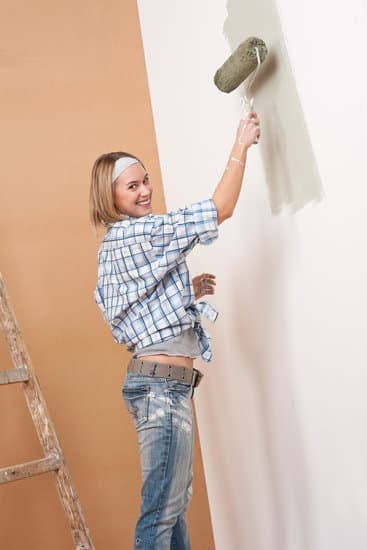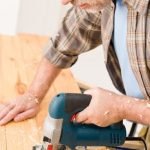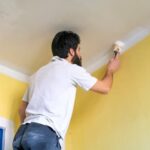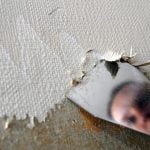Are you wondering how to improve air conditioner filtration in your home? Maintaining good indoor air quality is essential for a healthy and comfortable living environment. Air conditioner filtration plays a crucial role in removing airborne pollutants and allergens, making it important to understand its significance. In this article, we will explore the importance of air conditioner filtration and provide practical tips on how to enhance air quality within your home.
Indoor air pollution can have a significant impact on our health, causing respiratory issues and exacerbating allergies. Common air pollutants such as dust, pollen, pet dander, mold spores, and volatile organic compounds (VOCs) can circulate through the air in our homes if not properly filtered out. Understanding the types of pollutants affecting indoor air quality is an essential first step in addressing the issue of poor air filtration.
When it comes to improving indoor air quality, choosing the right type of air filter for your home’s air conditioning system is crucial. There are different options available, each with varying levels of filtration efficiency.
Factors such as filter material, MERV rating (Minimum Efficiency Reporting Value), and size should be taken into consideration when selecting an appropriate filter for your home’s HVAC system. In the following sections, we will delve deeper into the different types of filters available and provide insights on how to best maintain them for optimal performance.
Common Air Pollutants
Maintaining good indoor air quality involves understanding the common pollutants that can affect the air in your home. Some of these pollutants include dust, pollen, pet dander, mold spores, and volatile organic compounds (VOCs) from household products. These particles and allergens can lead to respiratory issues, allergies, and other health problems if not properly filtered out of the air in your home.
One way to improve air conditioner filtration in your home is by identifying the specific pollutants that are prevalent in your living space. By knowing which contaminants are most present, you can choose an air filter that is specifically designed to capture and remove those particular pollutants from the air.
For example, if pet dander is a significant issue in your home, selecting an air filter with a high Minimum Efficiency Reporting Value (MERV) rating for pet dander removal would be beneficial.
In addition to choosing the right air filter for your specific needs, it’s important to regularly maintain and replace filters according to manufacturer recommendations. This ensures that the filtration system continues to work efficiently and effectively at removing harmful particles from the air. Regular maintenance not only improves indoor air quality but also helps extend the lifespan of your HVAC system.
Types of Air Filters
When it comes to improving air conditioner filtration in your home, choosing the right air filter is crucial. There are several types of air filters available on the market, each with its own unique features and benefits. Here are some options to consider for your home air conditioner:
- Fiberglass Filters: These are the most basic and commonly used type of air filter. They are designed to capture large particles such as dust and dirt, but may not be as effective at trapping smaller pollutants.
- Pleated Filters: These filters have a larger surface area than fiberglass filters, allowing them to capture more airborne particles. They are more efficient at removing smaller pollutants like mold spores and pet dander.
- High Efficiency Particulate Air (HEPA) Filters: HEPA filters are known for their superior filtration capabilities. They can capture up to 99.97% of particles as small as 0.3 microns, including bacteria, viruses, and pollen.
When considering which type of air filter to use in your home air conditioner, it’s important to assess your specific needs and budget. While HEPA filters offer the highest level of filtration, they also tend to be more expensive than fiberglass or pleated filters.
In addition to the type of filter, you should also pay attention to the Minimum Efficiency Reporting Value (MERV) rating when choosing an air filter. The MERV rating indicates the effectiveness of the filter at capturing airborne particles. A higher MERV rating means better filtration, but it’s important to ensure that your HVAC system is compatible with the chosen MERV rating.
By understanding the different options for air filters and their respective benefits, you can make an informed decision on how to improve air conditioner filtration in your home.
Best Practices for Regular Maintenance
Regular maintenance is crucial for keeping air filters clean and efficient in your home air conditioner. Over time, dust, dirt, and other airborne particles can accumulate on the filter, reducing its effectiveness in capturing pollutants and allergens. Therefore, it’s important to establish a regular schedule for checking and replacing air filters to ensure optimal filtration and indoor air quality.
One of the best practices for maintaining air filters is to follow the manufacturer’s recommendations for filter replacement. Most home air conditioners have disposable filters that need to be replaced every 1-3 months, depending on usage and environmental factors. Additionally, if you have pets or live in an area with high pollen or pollution levels, more frequent filter replacements may be necessary.
In addition to regular filter replacement, it’s also important to keep the surrounding area clean to prevent dust and debris from accumulating on the filter. Vacuuming and dusting around the air conditioning unit can help reduce the amount of particulates that enter the system, prolonging the life of the filter and improving overall filtration efficiency.
| Regular Maintenance Tips | Description |
|---|---|
| Replace Filters Regularly | Follow manufacturer’s recommendations for scheduled replacement based on usage and environmental factors. |
| Clean Surrounding Area | Regularly vacuum and dust around the air conditioning unit to prevent dust and debris from entering the system. |
Upgrading Air Filters
When it comes to improving air conditioner filtration in your home, one of the most effective steps you can take is upgrading your air filters. With so many options available on the market, it’s important to choose the right filter for improved filtration.
Understanding MERV Ratings
One of the key factors to consider when choosing a new air filter is its Minimum Efficiency Reporting Value (MERV) rating. This rating system, which ranges from 1-20, indicates how effectively the filter can trap particles of different sizes. For residential use, filters with a MERV rating between 8 and 13 are typically recommended for optimal filtration without putting too much strain on your HVAC system.
Considering HEPA Filters
For homeowners who are especially concerned about indoor air quality, High Efficiency Particulate Air (HEPA) filters are an excellent option. These filters are capable of capturing tiny particles as small as 0.3 microns with an efficiency of 99.97%, making them ideal for those with allergies or respiratory issues.
Exploring Electrostatic and UV Filters
Electrostatic and UV filters are two other types of advanced filtration that can be considered for improving air quality in your home. Electrostatic filters use charged fibers to attract and trap particles, while UV filters use ultraviolet light to kill bacteria, viruses, mold spores, and other microorganisms. While these options can be more expensive upfront, they offer superior filtration capabilities and may be worth the investment for those seeking the cleanest indoor air possible.
By understanding the different types of air filters available and their unique features, you can make an informed decision when upgrading your home’s air conditioner filtration system. Considering factors such as MERV ratings, HEPA filters, electrostatic options, and UV technology will help you choose the right filter for improved indoor air quality.
Additional Air Purification Methods
As technology continues to advance, there are now various additional air purification methods that homeowners can consider to further enhance the air quality in their homes. These methods go beyond the standard air filters typically found in air conditioning units and offer more comprehensive solutions for cleaner and healthier indoor air.
UV Air Purifiers
One effective technology for improving air quality is the use of UV air purifiers. These devices utilize ultraviolet light to kill bacteria, viruses, and mold spores that may be present in the air. By installing a UV air purifier within your HVAC system, you can significantly reduce harmful pathogens circulating in your home, leading to improved respiratory health for you and your family.
Electronic Air Cleaners
Another advanced technology for enhancing air quality is electronic air cleaners. These devices work by using electrically charged filters to attract and capture particles such as dust, pollen, and pet dander. Electronic air cleaners have been proven to be highly efficient at removing even the smallest airborne particles, making them an excellent choice for households with allergy or asthma sufferers.
Whole-House Air Purification Systems
For homeowners looking for a comprehensive solution to improve indoor air quality, investing in a whole-house air purification system may be worth considering. These systems are designed to work alongside your existing HVAC system and are capable of capturing and eliminating a wide range of airborne contaminants. They offer continuous filtration throughout your entire home, ensuring that every room benefits from cleaner and healthier air.
By incorporating these advanced technologies into your home’s air purification efforts, you can greatly enhance the effectiveness of your existing filtration system. However, it’s important to consult with an HVAC professional before installing any new equipment to ensure compatibility with your current setup. With the right combination of technologies, you can enjoy consistently clean and fresh indoor air while minimizing the presence of harmful pollutants.
DIY Tips for Better Air Filtration
Improving the filtration of your home air conditioner is essential for maintaining clean and healthy indoor air quality. In addition to using high-quality air filters, there are several do-it-yourself (DIY) tips and simple actions you can take to enhance the efficiency of your air conditioner filtration system.
By incorporating these practices into your regular home maintenance routine, you can significantly improve the overall performance of your air conditioning unit and ensure that you and your family breathe in fresher, cleaner air.
Here are some DIY tips for better air filtration:
1. Change Air Filters Regularly: One of the simplest and most effective ways to improve air conditioner filtration is to regularly change the air filters. Depending on the type of filter you use, it’s recommended to replace or clean them every 30-90 days. Set up a reminder for yourself to check and replace filters on schedule.
2. Keep Air Vents and Registers Clean: Dust and debris can accumulate in air vents and registers, obstructing airflow and reducing the efficiency of your air conditioning system. Regularly vacuuming or dusting these areas can help improve air circulation and filtration.
3. Seal Leaks and Insulate Ducts: Inspect your ductwork for any leaks or gaps that may allow dust, allergens, or outdoor pollutants to enter the system. Use duct sealant or metal-backed tape to cover any openings, and consider insulating ducts in unconditioned spaces to prevent heat gain or loss.
By implementing these DIY tips for better air filtration, you can play an active role in improving the efficiency of your home’s air conditioning system while ensuring a healthier environment for yourself and your loved ones.
Professional Help
When it comes to improving air conditioner filtration in your home, there are times when calling in the experts is necessary to ensure the best results. While regular maintenance and DIY efforts can go a long way in keeping your air filters clean and efficient, there are certain situations where professional help is essential.
One instance where professional assistance may be needed is when you notice a significant decrease in your air conditioner’s performance despite regular filter changes and cleaning. This could indicate issues with the overall system that require a professional assessment. Additionally, if you have an older air conditioning unit or one that has not been serviced in a long time, it may be beneficial to have an HVAC technician inspect and potentially upgrade the filtration system.
Another reason to call in the experts for air conditioner filtration improvement is if you have specific concerns about indoor air quality. If members of your household suffer from allergies or respiratory issues, a professional can provide guidance on choosing the right filters or additional air purification methods to address these concerns effectively.
Overall, seeking professional help for air conditioner filtration improvement is crucial for ensuring that your home’s air quality is at its best. HVAC technicians have the knowledge and expertise to diagnose any underlying issues with your system, recommend appropriate solutions, and ensure that your air filters are effectively capturing pollutants. By partnering with professionals, you can enjoy cleaner and healthier air throughout your home.
Remember that while taking care of your own health well-being should follow recommendations made by professionals how to improve Air Conditioner Filtration in my home.
Conclusion
In conclusion, taking steps to improve air conditioner filtration in your home is essential for enjoying cleaner and healthier air. By understanding the importance of air conditioner filtration and the common air pollutants that affect air quality, you can make informed decisions about how to improve the air in your home.
One of the most effective ways to improve air conditioner filtration is by regularly maintaining and cleaning your air filters. This simple practice can significantly increase the efficiency of your air conditioning system and reduce the presence of airborne pollutants in your home. Additionally, consider upgrading to high-quality air filters that are specifically designed to trap a wide range of contaminants, including dust, pollen, pet dander, and mold spores.
In addition to regular maintenance and filter upgrades, you can also explore additional air purification methods such as using technology-based solutions like UV-C light systems or electronic air cleaners. These advanced techniques can further enhance the quality of indoor air by targeting airborne germs and bacteria.
Lastly, when in doubt, don’t hesitate to seek professional help from HVAC experts who can provide specialized guidance on improving air conditioner filtration in your home. By implementing these strategies, you can achieve a noticeable difference in indoor air quality and create a healthier living environment for you and your family.
Frequently Asked Questions
How Can I Improve My AC Filter?
You can improve your AC filter by regularly replacing it according to the manufacturer’s recommendations. Choose a high-quality filter with a higher MERV rating to capture more particles and improve indoor air quality.
Why Does My Home AC Filter Get Dirty So Fast?
There are several reasons why your home AC filter gets dirty quickly. One common reason is high levels of dust and pet dander in your home. Additionally, if you live in a very humid or dusty environment, this can also contribute to a faster accumulation of dirt on the filter.
How Can I Make My AC Condenser More Efficient?
To make your AC condenser more efficient, start by keeping the area around it clear of any debris or vegetation that could obstruct airflow. Regularly clean the condenser coils and fins, and consider installing shading or insulation to protect it from direct sunlight and outdoor elements. Additionally, scheduling regular professional maintenance can help ensure optimal efficiency.

I’m thrilled to have you here as a part of the Remodeling Top community. This is where my journey as an architect and remodeling enthusiast intersects with your passion for transforming houses into dream homes.





